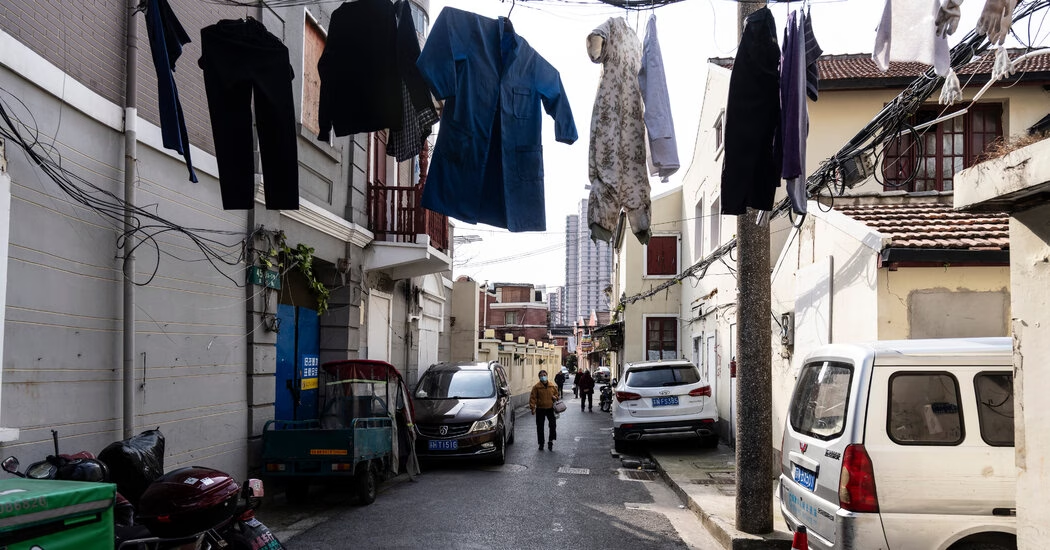The traces of Shanghai’s 2022 coronavirus lockdown have gradually disappeared from Fu Aiying’s stir-fry restaurant. The smell of rotten eggs, which occurred when she was taken away to quarantine without being able to refrigerate her groceries, is no longer present. The testing booths manned by workers in hazmat suits have been dismantled. Many of Fu’s neighbors have moved away from the century-old neighborhood, which had one of the city’s highest infection rates. The neighborhood itself will soon be demolished, as officials have scheduled it for demolition, stating that its cramped houses helped spread the virus. Fu’s restaurant is one of the few businesses still open in a row of darkened storefronts and caution signs taped to doorways.
However, the emotional legacy of the lockdown still lingers. Some residents, who had once taken pride in living in China’s wealthiest city, found themselves unable to buy food or medicine and worried about being forcibly separated from their children. Fu spent 39 days in a mass quarantine center, unsure of when she would be allowed out. After being released, she had to sneak into her restaurant for basic necessities since she didn’t have enough food at home. She felt as though a part of her had been permanently dulled by the experience.
The pandemic had a significant impact on China, where the outbreak began in Wuhan five years ago. For three years, longer than anywhere else, the Chinese government sealed the country’s borders. In the final year, 2022, they implemented a strict “zero-tolerance” policy, imposing lockdowns like the one in Shanghai nationwide. Even as the rest of the world decided to reopen and coexist with the virus, China maintained these restrictions. Years later, the effects of the experience still linger. In another Shanghai neighborhood, which had the longest lockdown of 91 days, one woman paid $11 for a head of cabbage due to shortages during that time and now always stocks groceries. Another woman, who had previously planned to buy a house in Shanghai’s outskirts, decided to stay near trusted individuals due to the lockdown experience.
The pandemic made the Communist Party’s control policies more apparent. Before this, many Chinese people saw the controls as a worthwhile trade-off for the country’s economic gains. However, the lockdowns made it clear that the party was willing to sacrifice those gains and people’s safety at the whim of Xi Jinping. The authorities spent billions on testing, vaccination, and other related expenses, which are still affecting the economy today. Many people are hesitant to spend money and are struggling to recover financially. The government also enforces silence on the topic as a way to maintain control.
Despite the silence, people have not forgotten the impact of the lockdowns. Some residents were shaken by the arbitrary restrictions and the government’s sudden decision to end them, which led to shortages of medicine and overwhelmed hospitals. The mother of Carol Ding, a 57-year-old accountant, fell sick and died due to the lack of availability of medicine. Ding believes it will take at least 10 years for the emotional pain to fade away. On the surface, Shanghai appears to have fully recovered, with tourists visiting its attractions, but the economy is struggling. Many people are turning to gig work due to the lack of well-paying jobs.
Source: https://www.nytimes.com/2025/03/13/world/asia/china-covid-trauma.html




